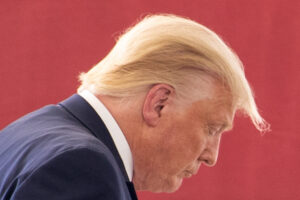All right, boys and girls, this might be wishful thinking on my part, but I damn sure hope it’s for real because it feels like the real thing to me.
I am beginning to believe that our Constitution is beginning to flex its considerable muscle just in time to put the brakes on Donald Trump’s headlong dash toward establishing an autorcracy where the nation’s founders set forth a democratic republic.
The federal judiciary is leading the way, just as the founders sought when they created a three-branch government in which the courts serve as co-equally along side the legislative and executive branches of government.
Trump surely has left us gasping for breath from the moment he took office on Jan. 20. It was his second time around the presidential pea patch. The good news? There will be no third go-round. The Constitution’s 22nd Amendment limits presidents to two elected terms. Period. Full stop.
The courts keep issuing rulings that are giving Trump fits. To which I say, good on ’em! We see even judges nominated for the federal bench by Trump himself issuing decisions that are stripping away legal options bit by bit.
If the president were ever to read the Constitution, he would understand that the founders sought an independent judiciary that is relatively free of political pressure. Yes, Trump has three justices on the Supreme Court who have joined a six-justice conservative super majority. However, they are not following Trump in lockstep over the proverbial cliff.
Thus, the Constitution works … just as President Ford said in the moments after he took office at the end of our “long national nightmare.”

